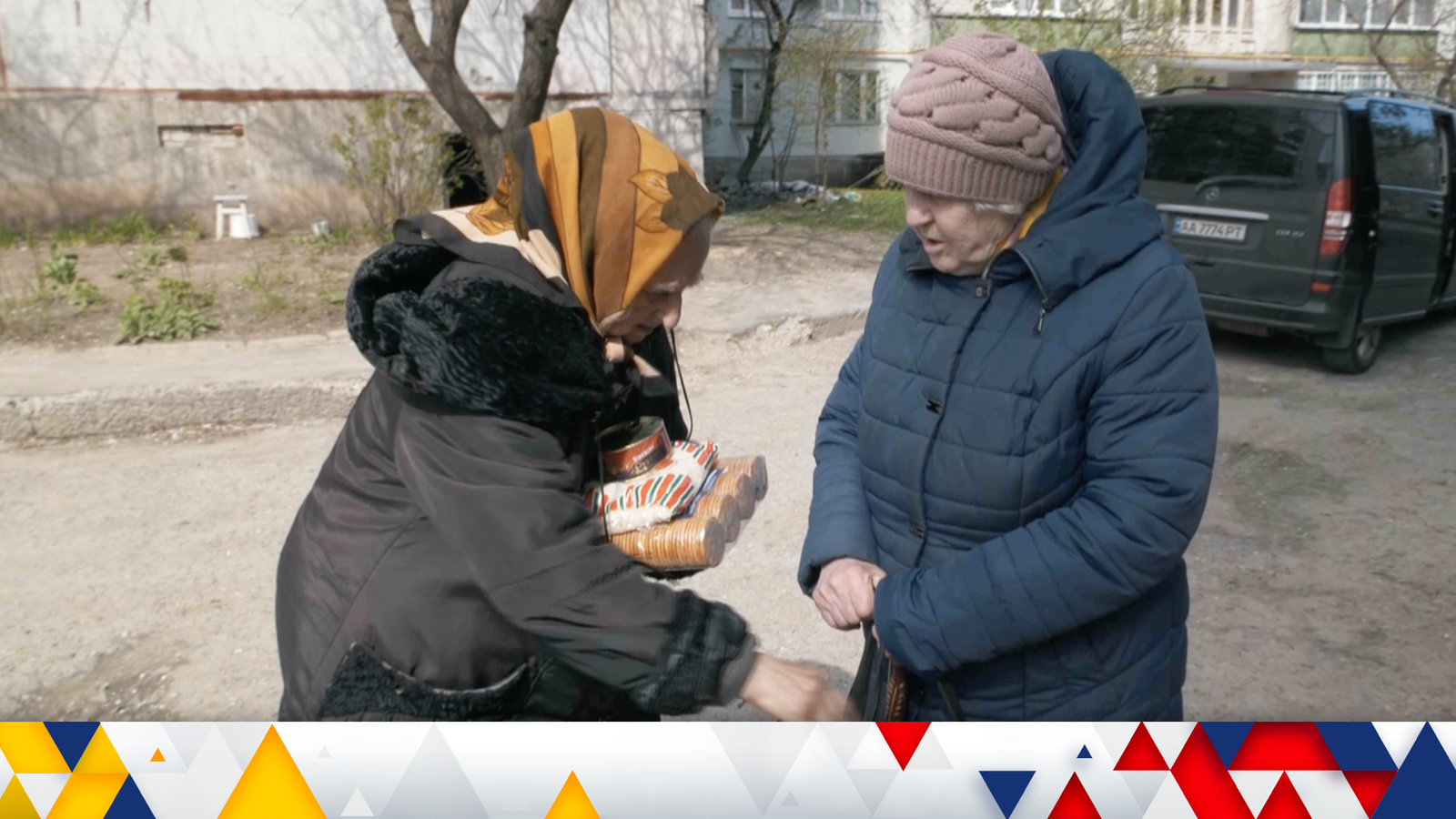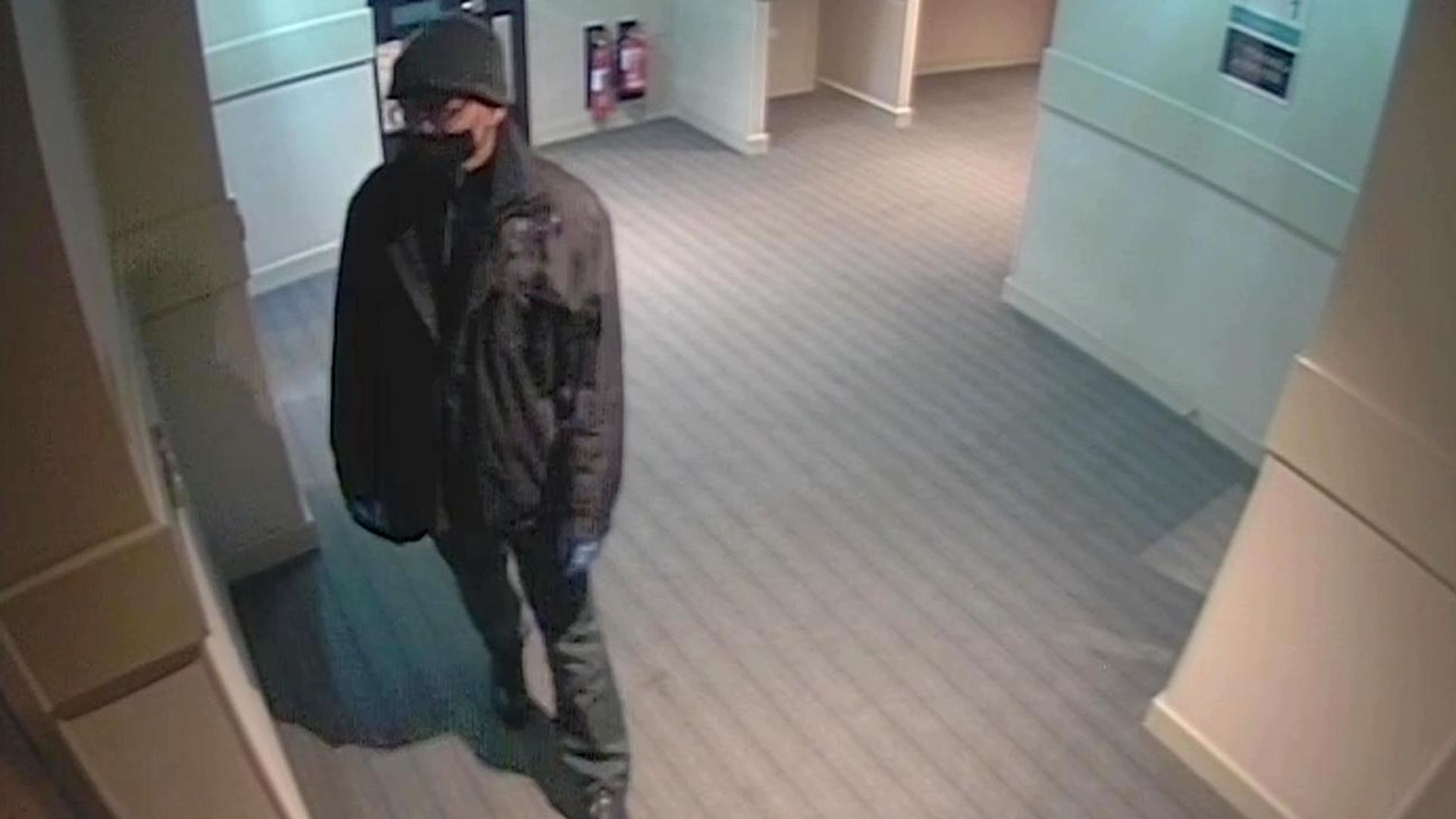The first thing you notice driving into Kharkiv is that what little traffic is here is going the other way.
This is a Ukrainian city largely emptied of life: deserted streets, destroyed buildings and the ever-present sounds of war.
Two days before the Russians invaded, we walked through Freedom Square in the bustle of a thriving metropolis.
That square was hit by a missile on 1 March, and destroyed a district council building.
The husk of it still stands, with jackets still in its cloakrooms and charred office furniture scattered across its floors. Many of the targets are just like this one – civilian.
While Russian forces have retreated from Kyiv, Ukraine’s second city Kharkiv continues to be under intense bombardment.
The Ukrainian military says Russian troops are trying to advance on its centre – just 20 miles from the Russian border – but are being held back. It means more shelling and more rocket attacks every day.
A group of volunteers, led by a man only known as Roman, is meeting us just north of the city centre to take much-needed aid to an area which has been worst hit – Saltivka.
A northeastern suburb of bombed-out apartment blocks, shocked survivors survey their wrecked lives and there is destruction everywhere you look. It is no place at all for anyone to live, but a few still do.
When help arrives, the people are overcome. An elderly woman greets us with tears and gratefulness.
“Thank you. You were very brave to come here”, she tells the volunteers unpacking a van and giving her with crackers, biscuits, bread and rice.
Her name is Ludmila Kyrichenko, she will turn 75 on 1 May and has spent the last 30 years living in Saltivka. For the last seven weeks, she has had no electricity or running water.
Before the war, Ludmila lived on the eighth building of a block of flats now scarred from the shelling.
Now, she survives below ground in a place that it would be too dignified to call a basement.
It is dark, damp with a dirt-covered floor and her bed is some sleeping backs surrounded by old clothes. Her only light source are candles, which are rapidly running out.
Ihor Mihailchenko, 51, takes us to his neighbour’s apartment where he has collected pieces of the Russian missile that struck their building. He lights a cigarette standing on a piece of collapsed wall and the hole blasted to the floor below.
We’ve heard three explosions in an exchange of artillery fire in just 10 minutes. Roman is nonplussed.
“It’s not too much for this place. It’s only the morning… [the Russians] just wake up and do something,” he said.
As if to prove his point, on the very same day in a different part of Saltivka another attack is caught on camera by another organisation – this time a hail of rocket fire. It is unrelenting.
“All I want is a peaceful sky”, says Ludmila. “A peaceful sky and some fresh bread.”
Everywhere we travelled here, people would emerge from their darkness: solitary, pale and looking for whatever Roman has to offer those who remain.
A man gets some toothpaste and tells the volunteers of another couple who he knows need help nearby. A stray dog is served a can of meat and jelly.
Before we leave Saltivka, another elderly lady slowly makes her way towards us. “Is the war over?” she asks Ludmila.
Please use Chrome browser for a more accessible video player
Ludmila tells her it hasn’t, but help has arrived. Ludmila reveals this woman is 94 years old and she had been knocking on her door without an answer for some time.
But then, in an extraordinary moment, Ludmila offers this woman the food she has been holding for herself.
“I don’t need it,” says her neighbour.
“What do you mean you don’t need it?” is the reply.
Ludmila places it in her bag and both women are in tears.
She has been given food to help her survive, and she has chosen to give that food to somebody else.
In Saltivka, this humanity is all they have left.






